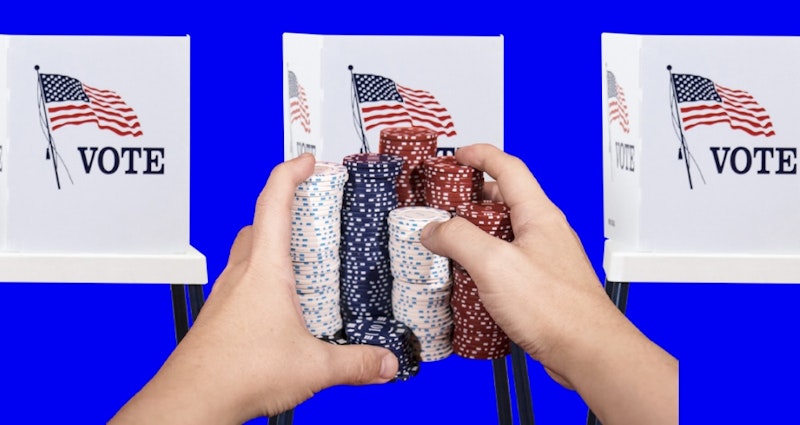Should the United States allow people to gamble on American elections? Some Democratic lawmakers say no, including U.S. Sens./ Ed Markey and Elizabeth Warren of Massachusetts, Sheldon Whitehouse of Rhode Island, Jeff Merkley of Oregon, Chris Van Hollen of Maryland, and Dianne Feinstein of California.
I usually disagree with the Senators from Massachusetts, but this is a unique circumstance—and they make solid points. The lawmakers sent a letter to the Commodity Futures Trading Commission (CFTC) urging Chairman Rostin Behnam to oppose a proposal to allow a private prediction market group to let it enact a plan which would open gambling on American elections.
Kalshi, a private predictions company, told the CFTC in the spring it wanted to let people effectively bet on elections. Kalshi, a federally-regulated exchange, allows people to trade on the likelihood of the outcome of events. Share values increase or decrease depending on how the probability of the event fluctuates.
Normally, these are the types of lawmakers who criticism for opposing election integrity measures. Warren and Markey oppose voter ID. They also opposed Georgia banning electioneering while people are in line to vote, but they raise valid concerns about election integrity here. “There is no doubt that the mass commodification of our democratic process would raise widespread concerns about the integrity of our electoral process," the lawmakers wrote in their letter. "Such an outcome is in clear conflict with the public interest and would undermine confidence in our political process—we urge the CFTC to deny Kalshi’s proposal."
We live in a country where millions of people refuse to accept the outcomes of big elections. Many Democrats think that people rigged the 2000 presidential election in favor of George W. Bush and that Russia rigged the 2016 presidential election for Donald Trump. Meanwhile, many Republicans think people stole the 2020 presidential election for Joe Biden. The latter was particularly unfortunate as this false belief resulted in a riot on Capitol Hill and people going to prison for storming the Capitol. It was a national embarrassment that ruined lives.
Some might counter by saying America has fair and free elections, so none of that matters. It makes sense if you take the Ben Shapiro “facts don’t care about your feelings” approach to life, but that’s not how society works. The way people feel matters for social stability, a metric that conservatives often ignore. However, an inability to address social instability caused the January 6 riot, plus an entire summer of violence and riots in 2020 in the name of Black Lives Matter. If a government can take simple actions to avoid repeats of those fiascos, it should.
If a financial incentive to rig elections exists, it increases the possibility of fraudulent elections. It would also increase the public perception that election outcomes were illegitimate. Who’s to stop right-wingers from spreading rumors that George Soros bet big on some election, rigged it, and won? Conversely, liberals and left-wingers could spread the same rumors about the Adelson family, given their casino connections.
The ultra-wealthy have legal methods to influence election outcomes, so allowing them to gamble on outcomes may further incentivize them to meddle. If the wealthy can get favorable laws from pay-to-play politicians and money for correctly predicting election outcomes, that’s a win-win for the donor class.
Although the lawmakers never mentioned the problems with gambling, that’s another reason to oppose it. Gambling exists to make money for bookmakers. It makes working people poorer while making the rich richer. Nearly everyone who gambles loses money and that hurts mental health.
Usually, the only way for most to consistently make money gambling without immense knowledge is through matched betting. It happens when bookmakers offer special promotions to incentivize gambling. These inflated odds can create arbitrage opportunities where people can make small money by betting on both sides of an event. Most people fail to capitalize on these arbitrage opportunities, and it’s unclear if any oddsmaker would give people boosted odds on political betting.

